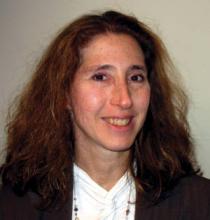There is never a perfect time to have children, but there are certainly times that are not ideal. I am married, and have three children, ages 8, 13, and 18 years. I had no difficulties with any of my pregnancies. I had my first child at the completion of my fellowship, and the other two while in academic practice. I worked up until the day I went into labor during training, and up until 2 weeks prior to my due date when I was in practice. I did modify my surgical schedule to avoid long or complex cases during my last months when I was in practice, whereas, this was not necessary during my training. I was fortunate to have partners who were accommodating.
Comparing surgeons to other professionals from the same generation would give better information as to whether the field itself is the issue, or whether this is more of a generational issue for professionals. Many of my friends both in medical and nonmedical professional fields also waited until early 30s to get married and have children, while others chose not to have any children to prioritize their careers. When I was in training, there were many places in which overt prejudice against women still existed. It was difficult enough to be "equal" to your male colleagues without having to deal with concerns of dumping work on them because of a pregnancy or the potential reaction from your chair or program director. Luckily, not all programs were like that. It was also commonplace to work upward of 100 hours per week.
Finding time for relationships, surviving a pregnancy, surviving a surgical residency, and not putting a pregnancy at risk was more difficult under those conditions.
Times continue to change, and pregnancy during training is becoming more common, especially in larger surgery programs. The acknowledgment that not only women, but also men of the younger generation are not willing to work to the exclusion of family, and outside life is changing the field, as is the fact that 50% of graduating medical students are women.
The ability to have children during training has also been facilitated by the duty hour rules, as well as by having more women faculty. We need to continue to examine ways to encourage the work-life blend in surgical fields, not only for women, but for men as well, or risk losing a large section of the class to "lifestyle fields." Having resources within the institutions such as child care, with hours compatible with working resident schedules would go a long way toward facilitating this blend. The finding that women surgeons availed themselves of fertility specialists more frequently than the general population did is not necessarily a concern. The question is whether the rate of infertility in women surgeons is truly significantly higher than that of their peers in other professional areas. The main issues to address remain how to facilitate childbearing for those women surgeons who wish to have a family, and how to facilitate the work-life blend for ourselves and all of our trainees.
Linda Harris, M.D., FACS, is division chief, vascular surgery, State University of New York at Buffalo.
The decisions about childbearing that women surgeons make are in many ways similar to those of other career-oriented women, as Dr. Harris points out. The dilemmas involved in this area are perhaps more extreme in the field of surgery, compared with other professions because to the pressures and length of training that are associated with surgery. It is a topic that deserves more attention, since from a very general perspective, it is difficult for a trainee to project out the implications of his or her choices in creating a family or having children 5 or more years beyond training. Decisions around childbearing are also complex, nuanced, highly personal, and variable to each person’s life experience. I had one child during my residency and another during my practice, which in each case had its own advantages and challenges. In my case, the most important factor to making it work as well as it has was having a very supportive spouse.
Genevieve Melton-Meaux, M.D., FACS, is an associate professor of surgery, University of Minnesota, Minneapolis.
As a medical student applying into a surgical subspecialty, I am sobered but certainly not surprised by these findings. I approach my career and desire for a family with wary readiness to face a lifetime of setting tough priorities that at times may feel isolating. Is a career as a surgeon incompatible with pregnancy, lasting marriage, and well-behaved children? I would say no, though it depends on who your partner is, where you work, and careful timing. With increasing numbers of females entering surgery who refuse to compromise mothering their own children, the work environment will have to change. Part of this changing landscape may mean that female surgeons will undergo assisted reproductive technologies at higher rates than their non-surgeon counterparts. It may mean that shift work becomes more acceptable. Regardless, the changes we create as a medical community should affect both men and women; we should be wary of designing special tracks or programs that can lend to further isolation and hand-waving of leadership. To ensure gender equity in surgery we are asking for institutional change – something for which there is never a perfect or easy time. Surgeons simply have to make it a priority.



